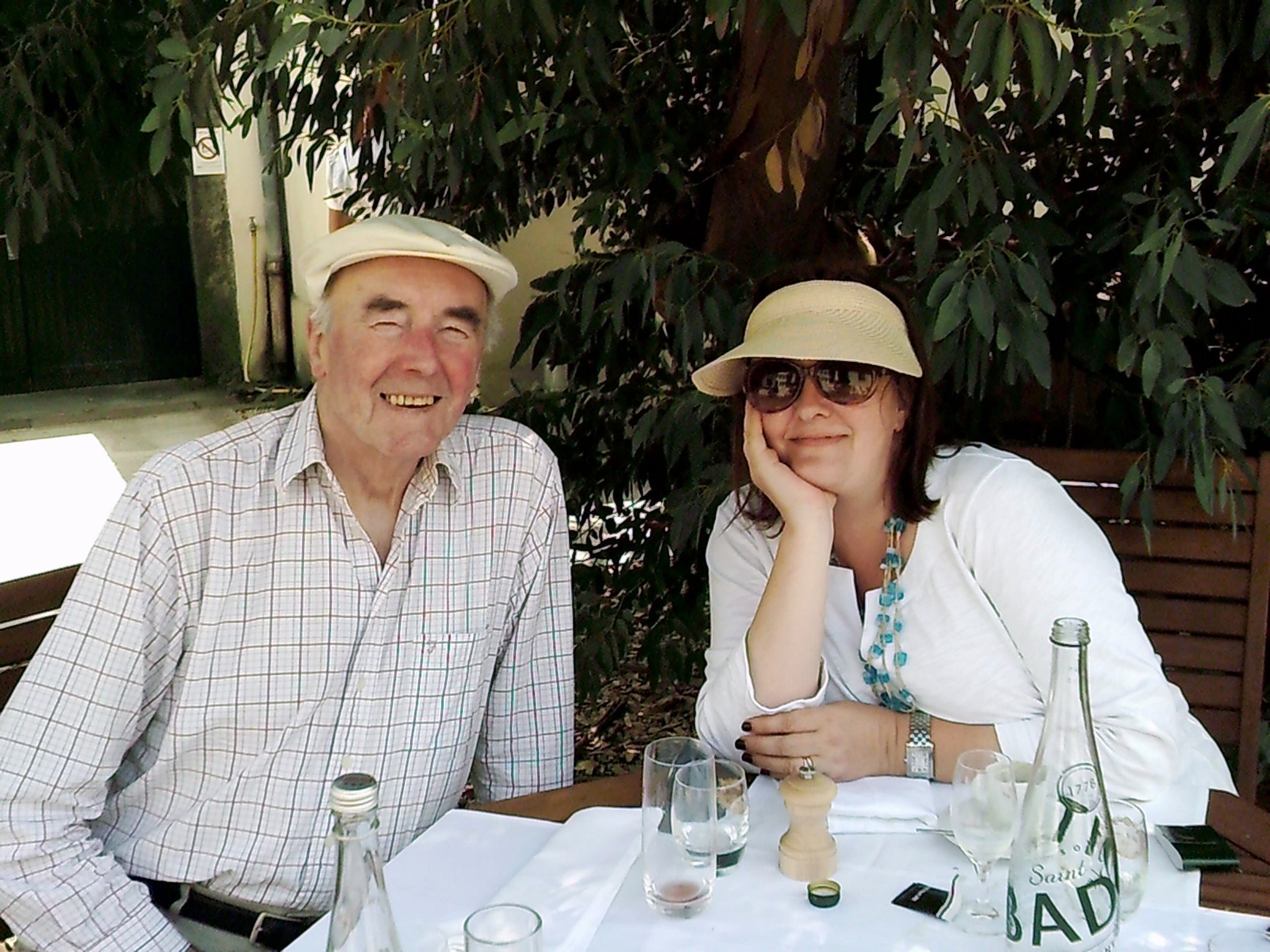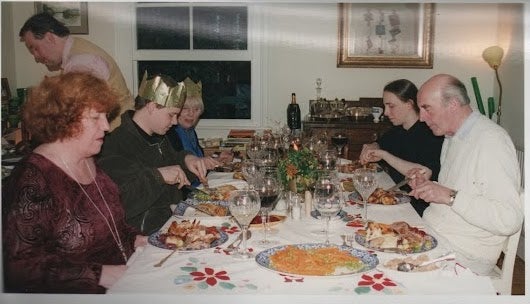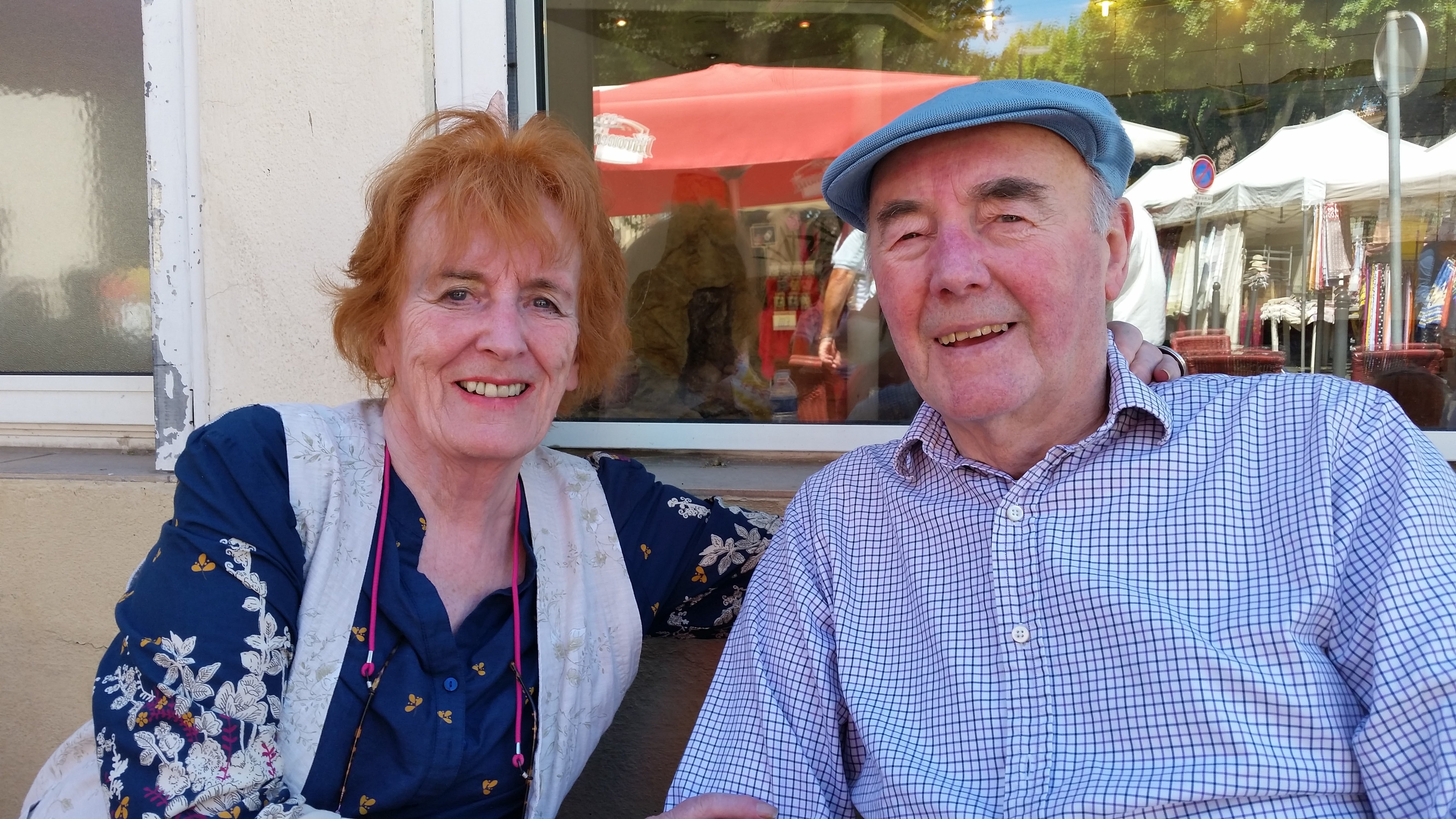How the death of my father made me ring in the changes this Christmas
A move to France and the heartbreak of losing her father has meant that Debora Robertson needed to rethink Christmas this year – but bringing in new traditions and ‘no rules’ has brought unexpected joy in a year of grief

My father died in April after, to use the argot of obituary notices, a long illness bravely borne. Grief is a strange animal. Time stretches and contracts and spirals in on itself. The days pass slowly and the weeks quickly. I spent months feeling as though I was trapped behind glass, separate, muffled, stumbling around in my own life but not really present. It was Easter and now, somehow, it’s Christmas. The first one without him.
I’ve always loved Christmas, its rituals and traditions, the messy excess. But in truth, we haven’t had a Christmas like that for quite a few years. My father’s illness meant dinner on trays, a quiet day. I tried not to miss too much of the life before, of full, noisy tables, mismatched plates and borrowed chairs. And I tried not to feel gnawing envy when I saw other people’s exuberant, peopled, Christmases on social media.
I know I was mourning him while he was still alive. I missed the clever, funny, opinionated, stubborn man he once was, the man who loved cricket and shouting at the television during Prime Minister’s Questions; who read two newspapers a day and who adored his family.
After death, miraculously, the person they once were comes back to you. You don’t expect it, or at least I didn’t. The memories of hospital beds, nurses’ visits, trays of pills and the daily tyranny of illness don’t vanish exactly. But they begin to share space with happier memories, ones where that person laughed and made jokes, was annoying and kind, happy and cross. In memories, they return to you as their whole selves. When I composed his eulogy, I wrote that in his illness, his life became small but that he was never small. In death, he is again his complete and complicated self.
But now what? How to do Christmas?
Post-covid we sold up our house in London and moved to southern France – to a new home in Marseillan that we are slowly renovating. To be together on the big day, we have invited my mother here this year. For several years, she couldn’t travel and I knew she missed it. When you’re caring for someone who’s housebound, you’re housebound too.

We bought an enormous Christmas tree from a man in a field and smothered it in lights, weighed down its branches with decorations. I filled the balconies with bright pink cyclamen and arranged pots of poinsettia and candles on every available surface. Last time we were in England I bought a big jar of posh mincemeat. I normally make my own, but one thing grief gives you is permission to take shortcuts. I still haven’t made any mince pies yet. Maybe I won’t. Maybe next year. The jar will keep.
I am learning that this first Christmas is as much about what you can’t do as what you can. My mother can’t bring herself to write any cards because, after 60 years of signing two names, writing only one is too hard. We laughed this morning when I reminded her that she always hated the buying, sending and writing of Christmas cards anyway, frequently dumping them resentfully into the letter box in the new year. Widow’s privilege: do what the hell you want. Who’s going to complain?
We’re gently making our new traditions this Christmas, which is easier to do in a new place. Instead of roast turkey, we’re having capon, in place of Christmas pudding we’re having a buche de Noel. We’re embracing all the seasonal exuberance this village has to offer, from Santa Claus arriving in the port by boat to be met by people dressed as white swans and then paraded through the old streets in a small train, to the nativity scene in the 12th-century covered market with its live hens, geese and goats and animatronic Wise Men.
There are concerts and fireworks and for some reason, Darth Vader (it’s what the Baby Jesus would have wanted, most certainly), and vin chaud and bowls of crab soup from the little stalls in the Place de la Republique. I have bought us matching silk pyjamas for Christmas morning – in a pattern my dad would have called “jazzy” – a first, and perhaps slightly preposterous first for two women aged 57 and 82. But you know, why not? That’s the thing about grief, to paraphrase a line from Back to the Future, where we’re going there are no rules.
What I have learnt in these difficult months is that – while of course you are sad and sometimes grief swallows you, paralyses you – you must allow yourself to be happy too. It isn’t a betrayal.

I was talking to a friend recently whose mother died a couple of years ago about how to get through this first Christmas. She said: “Take a year off if you want, from all the obligations and expectations. Don’t put yourself in a position where you have to be brave for other people. Do exactly what you want, escape if you want.” Realising you’re not obliged to do any of it made the prospect of doing some of it more appealing, less daunting.
I realise that the people you love, have loved, come back to you, on anniversaries and birthdays, at Christmas, and sometimes when you’re just folding the laundry or raking leaves. That person will always inhabit your life.
This morning over our coffee and croissants, my mother and I talked about this strange time. She said: “I want to see it as an opportunity to honour your dad by just keeping going, by being happy when I can. I hope each good Christmas from now on will be a tribute to him and the life we had together. Christmas changes all of the time anyway, from when you’re first married, when you have your children, to when they become adults. It is evolving still.”
Who knows how this Christmas will be. I will let the tears come if they come. I will let myself be happy and enjoy those moments too. I often think how very fortunate I was to have my father in my life for so long and sometimes it softens the pain of the missing.
I am looking forward, looking outwards, and thinking of things I can do that he would have enjoyed too. I am making plans for my new garden – 30 years ago, he helped me plant my first one, dressed neatly as always, in blue overalls. He loved to be on the water, so perhaps I will plan some sailing in the spring.
Another friend said that after her father died, she bought herself a special gift that Christmas, part cheer-up, part memory. I thought I might splash out on a beautiful cashmere sweater in cornflower blue, my dad’s favourite colour, so I can wear it and think of him. And also my husband just shrank my favourite cashmere sweater in the wash, so he can’t wince at the cost of a replacement when I say it’s from my dad.
If you’re experiencing your first Christmas after the death of someone you love, I am sending you all courage and strength. We will get through this and hopefully, probably, next Christmas will be kinder.






Join our commenting forum
Join thought-provoking conversations, follow other Independent readers and see their replies
Comments